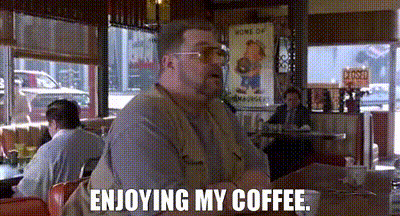Bewildering is one of those words you keep in your quiver of vocabulary, perfect for when you want to describe a feeling of complete perplexity. When you’re completely confused by something’s mere existence, you say that thing is bewildering.
Ikea furniture instructions can be bewildering. So can a sudden change in someone’s behavior. Today, the word is a part of your vocabulary you might not think about too much, but hidden in plain sight, there’s a neat little story.
As is so often the case with compound words, the etymology of bewildering is short and sweet.
The first root word is be. We know and use this one all the time today, like when you ask someone if they’ll be ready on time. You might also ask someone to be careful.
You might not have noticed, but both of these examples use the word be to talk about the future. You want them to be careful at some point in the future, and the time for being ready isn’t right now, but some later time.
Now, when you first learn English, you need to learn that “to be” is an important present-tense word. You need to conjugate it if you want to talk about the future or the past, and the form changes dramatically depending on who is being. We say I am and not I be when we want to talk about right now.
I be enjoying this coffee! I am enjoying this coffee! Which of those sentences sounds more natural?
No, we don’t use the word be to talk about the present in 21st century English. We use it to talk about the future.
Hold that in your mind for a moment, and let’s look at the rest of this fantastic word, bewildering. In Old English, the word wilde was used as both a noun and as an adjective. A wilde animal might come from an untamed, wilde location.
When Dutch settlers in South Africa noticed an antelope they had never seen before, they called it something like a wild beast, and today we still call these animals wildebeests.
If something was becoming more like this untamed location—or more like an untamed beast—it might be said to be becoming wilder. Maybe a person got stranded somewhere with no sign of civilization around, and they grew more wild over time. That person was wilder than they were before.
As one does, we humans decided to use something literal to mean something else entirely. If an idea seemed utterly perplexing or confusing, it could be thought of as having a similar effect, that of making you wilder.
If you could be bewildered by something, that thing was now said to be bewildering. This might describe something you ate or drank, literally causing your mind to have a wild, untamed state. Just as often, though, people started referring to the metaphorical idea of bewildering concepts that were tough to understand.
We humans have done this many times, and it never ceases to amuse me. Each time, we take an existing language tool and repurpose it for a completely different use. An extremely perplexing thought makes your mind seem as though it is wandering in the wilderness.
What a bewildering thought.







I found this whole post overwhelming and confusing to follow. How cool would it be if there was a single word to describe what I'm feeling.
That'd be wild.
Great post, used this the other week to describe life and weird things online that I don't quite know what to make of at times. However, I love putting together Ikea furniture, wouldn't put it in this category.